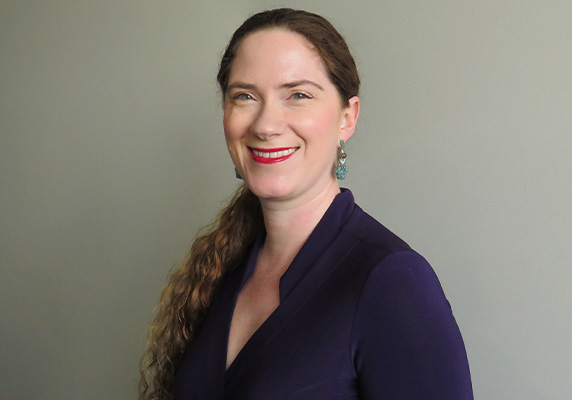In its submission on the Family Law Amendment Bill 2023 (Exposure Draft), Women's Legal Services Australia called for greater diversity in the professionals who provide support to families within the legal system.
Women’s Legal Services Australia (WLSA) is a national network of 13 specialist women’s legal services from all of Australia’s states and territories. The service is designed to improve women’s lives through gender-led and trauma-informed specialist legal representation, support, and advocacy.
On 27 February, WLSA published its submission on the Family Law Amendment Bill 2023 (Exposure Draft). The Bill’s primary purpose is to amend the Family Law Act 1975 (Cth) (Family Law Act), with some consequential amendments to the Federal Circuit and Family Court of Australia Act 2021 (Cth).
WLSA’s submission made a call for safety, accessibility and fairness in family law, and was endorsed by 32 organisations with expertise and engagement in family law. According to the submission, one of the foundational principles that should guide decision-makers in family law reform is ensuring diversity within the family law system – but at present this diversity is stymied by structural inequalities and bias in the family law system.
Greater diversity in the professionals who provide support within the legal system, the submission suggested, would mean individuals and families engaged with family courts are better represented.
Why diversity matters
Gabrielle Craig from WLSA in NSW spoke to LSJ about why diversity in the staff and judiciary matters, and how the current workforce is lacking in this area. Craig is an Accredited Specialist in Family Law and has been working with victims of domestic violence for over 15 years. She is the Chair of the WLSA Family Law and DFV Committee. She is also the Assistant Principal Solicitor at Women’s Legal Service NSW (WLSNSW). This is a specialist legal service providing advice and advocacy to women in NSW in relation to domestic violence, family law, human rights, discrimination and sexual assault.

Craig says, “It is imperative that the family law system is properly resourced and that all family law professionals, including Independent Children’s Lawyers and family report writers, are family violence informed, trauma informed, culturally safe, disability aware and LGBTIQA+ aware.
“It is vital to have regular, meaningful comprehensive training developed and delivered by the relevant experts – sexual, domestic and family violence experts, including lived experience experts, cultural safety experts, people with disability, and LGBTIQA+ people. This training must be regularly independently evaluated for its effectiveness, including evidence of improvements in the practice of professionals working in the family law system.”
Recognising diverse family structures
Addressing the shortcomings of the family law system as it currently exists is “multifaceted”, the WLSA submission accedes. One principal concern raised in the submission is that the family law system is still focused on the nuclear family and it does not adequately recognise Aboriginal and Torres Strait Islander family structures and child rearing practices and that non-direct relatives may have an important role in raising an Aboriginal or Torres Strait Islander child.
The submission calls for recognition of diversity to be fostered, measured and reported upon to ensure that it is not a hollow promise or a temporary effort. Rather, there must be a commitment to attracting, training and supporting individuals who represent multi-faith, multicultural, gender diverse, and people with disabilities. The focus is on enabling pathways for those who ultimately have the personal skills and qualifications to work within the family law system, but are a minority in the roles of judicial officers, lawyers, family dispute resolution practitioners, family report writers (court child experts) and other experts.
There must be a commitment to attracting, training and supporting individuals who represent multi-faith, multicultural, gender diverse, and people with disabilities.
Australia’s family law system dates back to the initiation of the Family Law Act and the Family Court of Australia in January 1976. The Family Court was designed to provide both legal and non-legal services for separating families, incorporating a network of service providers, with court counsellors to conduct relationship counselling and prepare reports about children for the court, and legal advisers to inform parties about their rights and entitlements.
The Australian Law Reform Commission (ALRC) addressed the need for diversity in its 2018 review of the family law system, acknowledging that reviews and research over a number of years have shown that mainstream family law services have not been designed or delivered in a way that recognises the lived experiences of people from gender, cultural and linguistically diverse backgrounds, and that there remain significant barriers affecting access to the family law system for Aboriginal and Torres Strait Islander families, people from culturally diverse communities, and for LGBTIQ families.
In terms of diversity in the federal judiciary, the ALRC review into judicial impartiality notes: “there is currently no official collection of statistics on diversity of background of members of the federal judiciary”. It recommends the Attorney General report annually on statistics regarding the diversity of the federal judiciary.
An Aboriginal and Torres Strait Islander workforce development strategy
Craig elaborates: “In 2012 and 2016, the Family Law Council recommended the implementation of a workforce strategy to ensure more Aboriginal and Torres Strait Islander people were employed in all professions across the family law system to increase accessibility of the family law system for Aboriginal and Torres Strait Islander families. Similar recommendations were made with respect to culturally and linguistically diverse communities. The 2016 Family Law Council Report also recommended a pilot involving the participation of Elders and Respected Persons to provide cultural advice in family law matters.”
“Immediate steps need to be taken”, Craig advises, “to implement the relevant workforce strategies — this includes training, recruitment, cadetships, continuing professional development, support and networking opportunities. This must involve an Aboriginal and Torres Strait Islander workforce development strategy that includes sustained, pro-active measures to develop, recruit and retain an appropriately skilled and qualified Aboriginal and Torres Strait Islander workforce in the family law system. This includes all roles: judges, lawyers, family dispute resolution practitioners, family consultants, and Indigenous Liaison Officers.”
Culturally diverse report writing
According to the 2021 report of the Judicial Council on Cultural Diversity, Cultural Diversity Within The Judicial Context, despite Australia’s position as one of the most culturally and linguistically diverse countries, individuals who are not fluent in English and those from culturally diverse backgrounds experience significant barriers to accessing justice, or working within, the judicial system.
The 2021 ABS Census indicates that just over 7 million people (27.6 per cent of the whole population) were born overseas, an increase from 6.1 million (26.3 per cent) in 2016. In 2021, 5.8 million people (22.8 per cent) reported speaking a language other than English at home, with 3.4 per cent of those households saying that English is a language they “do not speak well”, or “not at all”.
Part of the solution to the need for greater fairness and recognition of cultural diversity is to ensure that report writers in the family law system are thoroughly trained and appropriately qualified to work with diverse clients.
Craig says, “If we do not take meaningful steps to ensure that family report writers are adequately trained and appropriately regulated, given the significant weight that is placed on the reports, there continues to be a risk that unsafe and culturally inappropriate orders will be made by the court.”
Given the significant weight that is placed on reports in the family law system, there continues to be a risk that unsafe and culturally inappropriate orders will be made by the court.
Craig continues: “Family reports are frequently the only form of social science evidence available to the parties and the court in parenting matters. Family reports are not only regarded as vital evidence during court proceedings, but their content and recommendations can also significantly influence family dispute resolution negotiations and other negotiations throughout proceedings and have significance for decisions about funding of grants of legal aid.”
Family report writers working with Aboriginal and Torres Strait Islander families should be culturally competent in their interactions, and able to assess how a child’s connection to kinship networks and country might be maintained, Craig says.
“WLSA recommends that, for Aboriginal and Torres Strait Islander families, family reports should be prepared by Aboriginal or Torres Strait Islander family report writers. This requires an Aboriginal and Torres Strait Islander workforce development strategy as recommended in several Family Law Council reviews.“
WLSA’s recommendation is that the amendments should commence as soon as possible after the legislation is passed, since “the amendments go directly to the safety of children and as such every child should have the benefit of the amended legislation. The legislation should apply to all proceedings, whether already filed with the court or filed after the commencement date, with the exception of those matters where they are waiting on a reserved judgement.”




